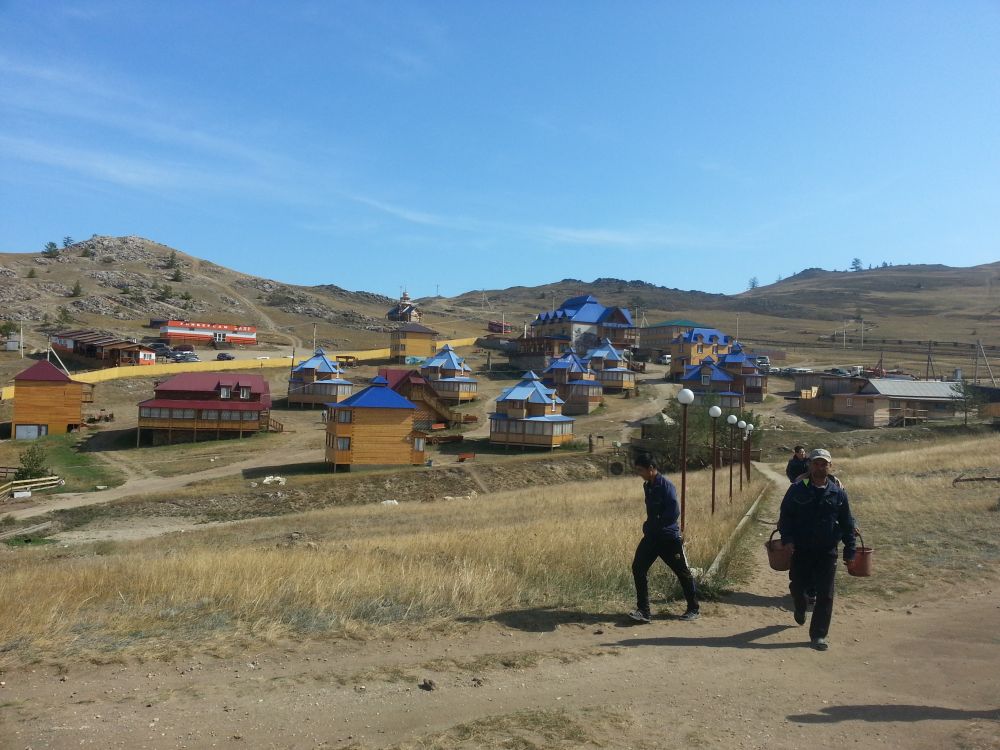
On September 12 the President approved a list of instructions to ensure compliance with the Law on Lake Baikal’s conservation and environmental rehabilitation.
The Government of the Russian Federation has been instructed to review issues pertaining to Russia’s compliance with its commitments on the conservation of Lake Baikal as a UNESCO World Natural Heritage site; the review of the activities of the interdepartmental commission on the conservation of Lake Baikal and improvement of its performance; and organisation of the work of oversight authorities in the Baikal Nature Territory.
The instructions for the Government also include improvement of state environmental monitoring of the unique ecosystem of Lake Baikal; prevention of and response to risks of disturbing Lake Baikal’s ecosystem; analysis of the fish stocks and fishing pressure on the Lake’s biological resources.
The Government of the Russian Federation and the Government of Irkutsk Region were given joint instructions with the VEB.RF State Development Corporation on eliminating the environmental damage done by the Baikalsk Pulp and Paper Mill.
The governments of the Republic of Buryatia, the Zabaikalsky and Irkutsk Region were instructed to assess the potential impact of tourism on the Baikal Nature Territory and ensure the adoption of amendments to the legislation aimed at reducing negative impact on the environment.
The Prosecutor-General’s Office, jointly with the Federal security Bureau and the Interior Minister received instructions to make a legal assessment of the activities of the relevant organisations on compliance with legislation on the conservation of Lake Baikal, and the elimination of negative ecological consequences of tourism and waste management.(end of citation)
From Sept.12 on security agencies, regional bureaucracies, conservation scientists and local businessmen spend sleepless nights trying to interpret these well-meaning “instructions” and prepare for their consequences. Somehow this text makes everyone believe that whatever was stated by this document was meant to be done and implementation will be monitored from the highest level.
A week after the Rivers without Boundaries (and a number of other experts) got from the key English-language newspaper of the Chinese business world – South China Morning Post – a request to explain whether the “instructions” have been produced in response to alleged Chinese environmental impacts on Lake Baikal. See excerpts from the article by Simone McCarthy below
Observers say domestic issues ” including a backlash over the government’s hand in accelerating environmental damage ” prompted the Kremlin to act, but concerns over Chinese activities in the area also played a part.
Eugene Simonov, coordinator of the Rivers Without Boundaries International Coalition, said the protocols were a bid by Moscow to show it was concerned about the lake, where mismanagement and relaxed standards had damaged water quality and the ecosystem ” drawing concern from UNESCO, which has designated it a World Heritage Site.

But it was also related to local concerns that an influx of Chinese money and tourists in the region was making matters worse.
“One of the leading causes of problems on Lake Baikal is the development of the lake shore for tourism these days, which, at least in the Irkutsk region, is greatly driven by Chinese business,” said Simonov, who has worked extensively on the area’s environmental issues.
He pointed to the “not legal” hotels opened by local and Chinese businesses that cater to the increasing number of tourists from China, saying they stood out as easy scapegoats.
“The real driving force is the desire of locals to privatize the lake shore, illegally, but the Chinese demand is one of the reasons they want to privatize it, while Chinese businesses are among the most visible because they are foreign,” he said.
Some 186,000 Chinese tourists visited the region last year, up 37 per cent from 2017, according to official Irkutsk figures. But while they accounted for about two-thirds of foreign visitors to the Irkutsk region, they made up only about 10 per cent of the 1.7 million tourists who visited last year.

Concern about Chinese investment and development in the region reached a crescendo in March, when public opposition pushed local authorities to halt the construction of a water bottling plant operated by AquaSib, a Russian firm owned by a company based in China’s Heilongjiang province.
The Irkutsk government acted after more than a million people ” more than the city’s population ” signed a petition calling for the “Chinese plant” to be halted.
“There were at least 10 problems [around Lake Baikal] that were much more important at that moment, but it was the Chinese plan that was the focus,” Simonov said, noting the nationalism surrounding the lake as a Russian point of pride.
Lake Baikal has been seen as an area that could draw a lot of Chinese investment. Back in 2016 there were reports of a tourism development deal, worth up to US$11 billion, between Russian operator Grand Baikal and a consortium of Chinese firms, according to Russian state media reports.
But so far most development from Chinese businesses has remained at the small and medium scale.
The reasons for that, according to experts, range from the difficulty of competing with powerful local rivals and the need to tread carefully around anti-China sentiment. However, the burden and liability of complying with environmental standards also kept operations at a smaller scale.
“It’s simpler and easier to operate smaller businesses and facilities, and it’s easier to monitor and manage them,” said Vitaly Mozharowski, a partner at Bryan Cave Leighton Paisner in Moscow, who specialises in environmental law, noting that concerns included management of waste water and garbage.
Meanwhile, big complexes were obvious targets for scrutiny, and that would only increase with the new protocols in place, Mozharowski said. “Any large-scale initiatives would be considered from the very top of the Russian establishment,” he said.
South China Morning Post. September 20

